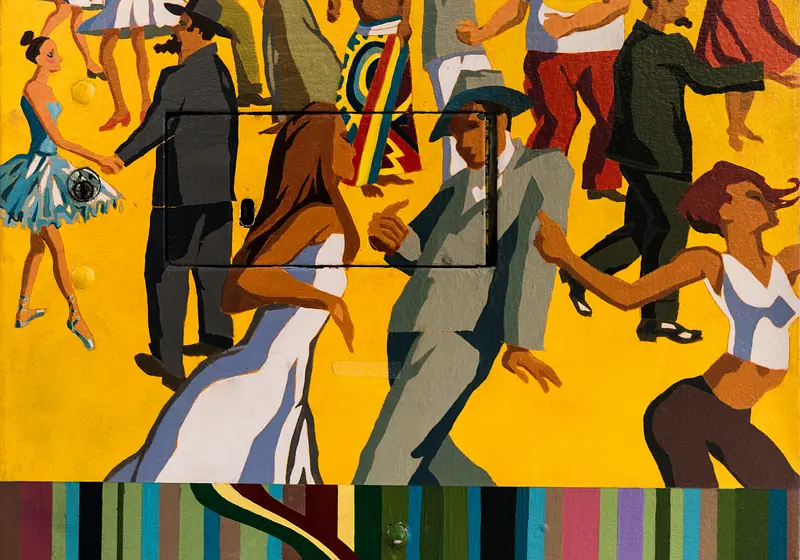When I was thirteen, I finally realized that I would never have the answer to the constant where are you froms that hunt me from every pocket of the planet.
If you’re a bicultural teen like me, you probably understand the dread of responding to this question when meeting somebody new. Because in the end, what is home? Is it where you live?
Where you were born? Where you spend the most time? Where you feel most identified?
All of the above? None of the above?
I’m not embarrassed to acknowledge my home, I just don’t know where “home” is, and every time somebody asks me this question, I spend a little too long rolling my tongue around in my mouth, trying to figure out how to summarize where I’m “from” in less than a 3000-word essay. My most common, go-to responses are: 1) I‘m not sure. 2) It’s complicated.
About me: I was born in Miami, lived there until I was eight before moving to New York for five years, and then, out of the blue, moved to Havana, Cuba, because my mother decided she wanted to return to her roots, where she was born, and where you could say I am “partially” from too.
If you thought that having a Cuban mother and an American father means that you’re from two places, you were very much mistaken; for me, it’s the complete opposite. Everywhere I go, I’m from somewhere else, and everybody is always trying to find a place for me based on my achievements, my appearance, my experiences, and even my likes or dislikes.
It’s confusing when, in Cuba, after spending hours searching for toilet paper when it’s out of stock or dealing with the suffocating sun or waiting months to get a piece of chicken just like every other Cuban, people still classify me as a yuma (foreigner). On the other hand, I don’t understand when, in the United States, I’m told I’m the Cuban, even though I was born in Miami, spent my pre-teen years in New York.
For me, this is infuriating, and not because I feel like I belong as a Cuban or as an American, but because people so often forget to consider that I have a little bit of everything in me, that I can’t be just Cuban or just American, that you can’t categorize me or give me a national label.
What is this need to be from a place, to belong to a place? It must be human instinct. We like to have hobbies, to have talents and even flaws, to have a pack.
We need to belong. The desire to have a “home” is as related to that as the desire to fit in with our zodiac sign, our music taste, our religious view.
And who am I fooling? Of course, I like to fit in — it’s a part of who we are as humans. But wouldn’t it be nice to live without labels and classifications and categories? This need to reduce people to their essence is infinite, so why do we do it?
Owning your nation does have a great beauty — but it’s not right to impose what you think is accurate on other people who might feel otherwise. Whether you’re bicultural or not, it’s annoying to be told where you’re from.
My concept of home has completely strayed from location. I collect home and put it in a little pocket in my brain, and leave it there, and then travel around and take it with me, and travel around some more and take it with me some more, and collect more too, because I’m always collecting. I collect sounds, scents, tastes, moments, and people.
I collected throwing eggs at the intersection on New Years Eve. I collected city sewers and train tracks. I collected reguetón at eight in the morning, and also, at eleven at night.
I collected the sea, the seaweed, the snowy sand. I collected one piece of chocolate after dinner, once a week, or else it’ll run out. I collected laughing over the telephone for two hours and thirty-seven minutes about hair problems, specifically, bangs problems.
I collected too many torrejas. I collected breakfast with the entire family, breakfast that becomes lunch and snack and dinner and breakfast again, because no one ever wants to leave. I collected Mami’s perfume, Kika’s happy smile, Daddy’s T-shirts that he would let me use to blow my nose when I cried.
I could go on for hours, and in a few months I could on for twice that, because my collection grows in a chaotic manner. So, when people ask me where I’m from, I don’t know how to explain to them that my home isn’t a place. Home is much more than that.
Home loses chronology, loses setting, loses the “where I’m from” ingredient, and becomes an ocean of disperse elements. I’m from nowhere, I’m from everywhere.
I don’t think you need to be a bicultural person to be from nowhere and everywhere, but it’s harder to see that you don’t need to belong to a place when “home” has been taught to you as a permanent residence, a house or an apartment or maybe a teepee. Home is more than that, whether we like it or not. We’ve all made our own collections, and so every single one of our homes is different. We live in our thoughts, in our memories, in our people.















